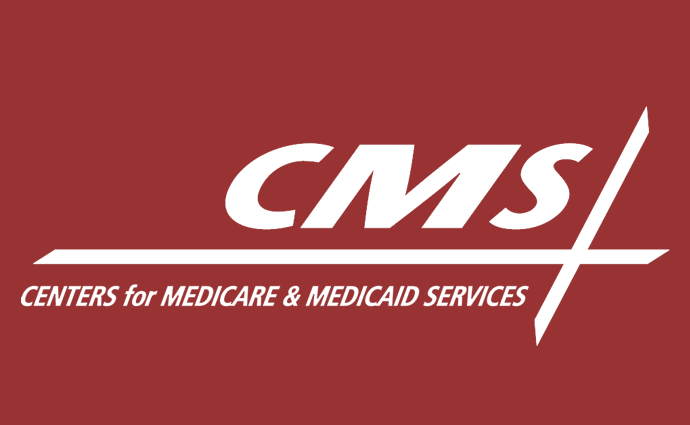CMS OKs Demo to Expand Behavioral Health Treatment in Medicaid
DC will be the first to receive federal matching funds for IMD services through a Section 1115 demonstration aimed at broadening opioid use disorder and other behavioral health treatment.

Source: CMS
- CMS approved a Section 1115 demonstration that will broaden behavioral health treatment for Medicaid beneficiaries living in the District of Columbia who have been diagnosed with serious mental illness (SMI) and/or serious emotional disturbance, according to a recent press release.
Under the demonstration, DC will be the first to receive federal matching funds for providing services to Medicaid beneficiaries while they reside in institutions for mental disease (IMDs), which does not typically occur because of federal law.
“For too long, our system has failed to provide Americans with serious mental illness and their families the treatment and assistance that they need,” HHS Secretary Alex Azar stated in the press release. “Americans with serious mental illness too often end up homeless or in our prisons, when access to treatment could help them lead healthy lives.”
After Trump Administration issued a letter explaining the potential opportunity to state Medicaid Directors in late 2018, DC became the first nation to be awarded federal funding.
The letter proposed the opportunity to design innovative service delivery systems that incorporate systems to provide community-based services for adults with a serious mental illness or children with a serious emotional disturbance (SED).
READ MORE: CVS Health Invests $2.5M in Tobacco, Opioids Substance Abuse Care
While behavioral health management is crucial across the nation, DC has been in great need as a result of the opioid crisis, as well as the large proportion of chronically ill homeless individuals who have SMI, SUD, or both living in the area.
Opioid-related fatal overdoses increased by 236 percent from 2014 to2017 in DC, CMS reported. In addition, about one-third of the region’s adult residents that are treated for OUD or SUD have a co-occurring SMI, according to the press release.
The Section 1115 demonstration will allow the Medicaid program to treat individuals with SMI who are short-term residents in a setting that qualifies as an IMD.
CMS and DC officials expect the demonstration to improve access to acute care, residential treatment, crisis stabilization, and other mental health and SUD services, which has the potential to save the lives of thousands of Americans. They also anticipate the demonstration to lead to reductions in preventable emergency room and inpatient care.
“Today’s historic approval will substantially increase the range of services that are available to meet the needs of the District’s Medicaid beneficiaries who are diagnosed with serious mental illness and substance use disorder,” CMS Administrator Seema Verma stated in the press release. “This integrated approach supports the District’s goals of reducing opioid misuse and overdose deaths- while expanding the continuum of mental health and substance treatment options for individuals in need.”
READ MORE: Opioid Overdoses Fall by 2% from 2017 to 2018, CDC Reports
In order to ensure the appropriate use of opioids, Anthem BlueCross BlueShield (BCBS) and affiliated health plans are taking steps to prevent any misuse of opioids, according to a press release.
The opioid crisis has been a nationwide issue for years, and in 2017, HHS announced a national state of emergency concerning the opioid epidemic. States have been responding to the national state of emergency by enhancing Medicaid benefits to treat beneficiaries with OUD and SUD.
For example, in addition to DC’s Section 1115 approval, CMS also approved Alaska’s application to provide better behavioral healthcare management for those with SUD. The waiver sought to create a more integrated health system and expand Medicaid services through outreach, prevention, and early intervention.
Improving care practices is of the utmost importance, and private payers are able to take initiative in promoting awareness by creating their own individual programs and partnering with other contributors.
Aetna’s Guardian Angel program, for example, is consistent with following up with members to help the recovery process.
READ MORE: CMS OKs AK’s Section 1115 Demo, Expands Behavioral Healthcare Services
“Our data revealed that there were significant gaps in care for many members who had survived an overdose,” explained Daniel Knecht, MD, vice president of health strategy and innovation for Aetna. “We noticed patients would be treated in the ED and discharged with minimal ongoing support.”
Blue Cross Blue Shield North Carolina is another major payer that announced significant investment in local opioid care initiatives.
Specifically, the payer awarded five grants to address the opioid epidemic in North Carolina where three people die from opioid overdoses every day. Blue Cross Blue Shield North Carolina awarded a total of $2 million toward the selected projects, accounting for one-fifth of the $10 million the payer has dedicated to the opioid epidemic.
“Investments to address drivers of health lead to better health outcomes,” Patrick Conway, MD, President & CEO of Blue Cross NC, stated on the organization’s website.
